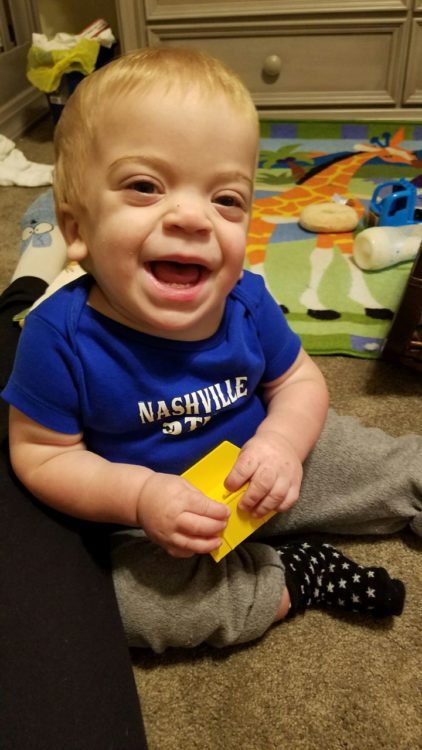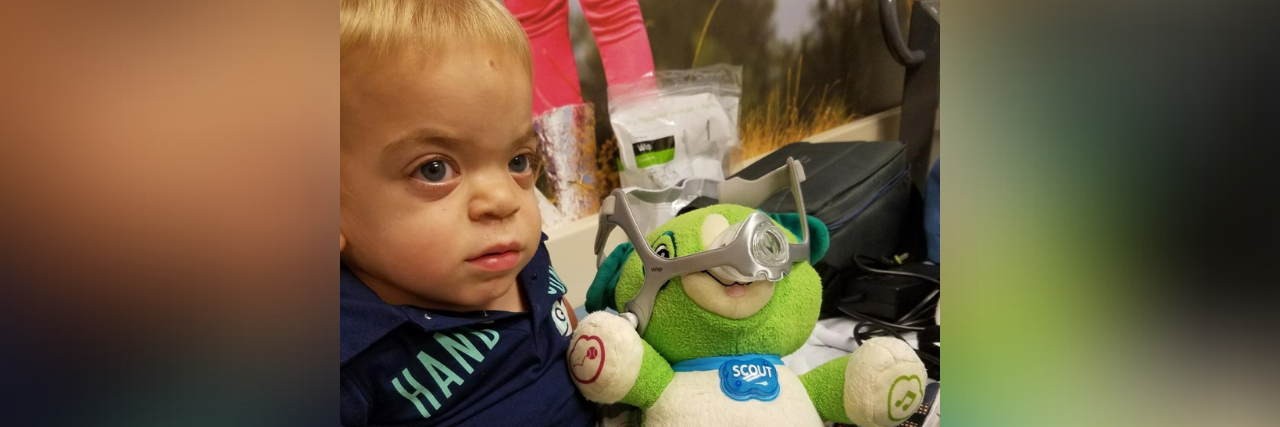Making Decisions When Your Child Is Newly Diagnosed With a Rare Disease
The first couple of days after a diagnosis of a rare disease are a blur. You spend your days and nights in a constant cycle of trying to gain as much information as possible about the disease, grieving, being overly hopeful, letting your mind go down different paths of “what ifs” and maintaining your daily life. When my son was first diagnosed with Hurler’s syndrome, that cycle did not really allow me to digest or understand fully a lot of the information being thrown at me both through my own research and by other parents of kids with Hurler’s.
I remember one conversation where the parent, who tends to be medically minded, had medications with complicated names rolling off her tongue like the names of famous actors. I felt like I should know what the meds were she was talking about and what they were used for, and yet it was a foreign language to me. In trying to get information to make decisions in a timely manner, I forgot to leave time and room for digesting the information.
There is only so much space in the mind to digest information, especially such foreign information. In trying to run through learning everything I could about Hurler’s Syndrome (wouldn’t any parent?) so I could make informed decisions, I did not let myself fully understand all the components that would be coming together. It is true what they say about the first days, weeks and even months being a blur.
I did not really understand what it meant to go through a transplant. I just knew that it was my son’s best option at the time for as close to a normal life as possible. I knew how impractical it was for us to fly across country for six to 12 months to get a transplant at the most well known hospital for MPS and was grateful to find great care locally that worked better for my family situation.
I did not realize how much I would have benefited from the MPS community that exists at the well known hospital. I knew I did not want my son to get a transplant from a BMT team that could not even pronounce his disease (even though at the time I couldn’t either). I knew my son would need chemo and long term meds. I did not know how the chemo would wreck his body and how long he ultimately would be on those long-term meds.
The MPS society, doctors and other families may have tried to tell me these things. I honestly don’t remember. The blur of the first days/weeks and even months of being newly diagnosed do not really allow for anything but information overload. You hope that you are processing enough of the important information to make informed decisions. You hope that you’re not focusing on the minute things that will not help you in the long run. You hope that you are not missing an important studies or new findings that may have come out recently. You try not to focus on the what ifs. You try to figure out how this new diagnosis and all it entails is going to fit in your life. You try not to think too much of things like life expectancy, limitations, therapies, specialists, money and how long those will now be a part of your life. But the reality is you do.
I look back at the decisions we made when we were newly diagnosed and the paths we took and I wonder if I would make all of the same decisions today as I did then. Now I know more, I have had almost four years to digest this diagnosis and what it means to my son, my family and my life. Looking back I don’t know that I would have changed any of the big decisions we made or any of the paths we took. I have been very happy with my son’s care and with the team we have surrounding him.

He is still the same happy boy he was before diagnosis. He knows he is loved by his family, his therapists and his oncology team. To have professionals love my son like their own has been so important on this journey. If anything I may have been more open to trying to surround myself with other parents of MPS kids to have their support especially on the hard days. But it was also hard to see on social media, some of the families who were struggling with complications that I was praying we would not get.
I also would have given myself and my husband a little more grace. A new diagnosis and the decisions and paths that follow are not easy on anyone. Everyone is just trying to find their way and trying to process it in different ways. Everyone is wanting the best outcome, but our methods and choices surrounding that may be different and that is OK.
A new diagnosis is not for the faint of heart and it is not an easy time, but eventually you are no longer newly diagnosed and you don’t have the newness of it all holding you down. At some point it just becomes another facet of your life. You learn how to use toys to help acclimate your child to new procedures and devices and the language of rare disease becomes your second language. It is part of your everyday normal. At some point you might forget what it was like prior to diagnosis, but you never forget the turmoil the first days of a diagnosis brought.
Images via contributor

